
Vocal performer & musician Jaap Blonk presents a rendering of French dramatist, poet and theatre director Antonin Artaud's "Pour en Finir avec le Jugement de Dieu" (To Have Done With the Judgment of God), a work shelved by the French Radio in 1948 without broadcast as 'too scatological, political, anti-religious, random, and cacophonous through xylophonic and percussive sounds'.
In Stock
Quantity in Basket: None
Log In to use our Wish List
Shipping Weight: 3.00 units
EU & UK Customers:
Discogs.com can handle your VAT payments
So please order through Discogs
Sample The Album:
Antonin Artaud-composer
Jaap Blonk-performer
Click an artist name above to see in-stock items for that artist.
UPC: 8713897904604
Label: Kontrans
Catalog ID: Kontrans 666
Squidco Product Code: 29602
Format: CD
Condition: New
Released: 2020
Country: The Netherlands
Packaging: Cardboard Gatefold
Recorded in Arnhem, Netherlands, on March 15th, 2020.
"The work of Antonin Artaud (1896-1948), the French dramatist, poet, essayist, actor and theatre director, was a great inspiration and stimulant for me when I started out as a vocal performer. His pioneering writings on theatre gave me the freedom to venture much further into madness on stage, while still being perceived as authentic and powerful."-Jaap Blonk
"Antonin Artaud recorded "Pour en Finir avec le Jugement de Dieu" (To Have Done With the Judgment of God) between 22 and 29 November 1947. The work was shelved by Wladimir Porche, the director of the French Radio, the day before its scheduled airing on 2 February 1948. The broadcast was prohibited partially as a result of its scatological, anti-American, and anti-religious pronouncements, but also because of its general randomness, with a cacophony of xylophonic and other percussive sounds. While remaining true to his Theatre of Cruelty and transforming powerful emotions and expressions into audible sounds, Artaud had utilized various alarming cries, screams, grunts, onomatopoeia, and glossolalia. This new recording aims at faithfully capturing the spirit Artaud intended to convey: the lucidity as well as the powerful emotions. Jaap Blonk performs the complete text, while taking the liberty of inserting more of Artaud's sound poems and some improvisations. A famous short poem by Artaud was added as an epilogue."-Kontrans

The Squid's Ear!
Artist Biographies
• Show Bio for Antonin Artaud "Antonin Artaud, original name in full Antoine-Marie-Joseph Artaud, (born Sept. 4, 1896, Marseille, France-died March 4, 1948, Ivry-sur-Seine), French dramatist, poet, actor, and theoretician of the Surrealist movement who attempted to replace the "bourgeois" classical theatre with his "theatre of cruelty," a primitive ceremonial experience intended to liberate the human subconscious and reveal man to himself. Artaud's parents were partly Levantine Greek, and he was much affected by this background, especially in his fascination with mysticism. Lifelong mental disorders sent him repeatedly into asylums. He sent his Surrealist poetry L'Ombilic des limbes (1925; "Umbilical Limbo") and Le Pèse-nerfs (1925; Nerve Scales) to the influential critic Jacques Rivière, thus beginning their long correspondence. After studying acting in Paris, he made his debut in Aurélien Lugné-Poë's Dadaist-Surrealist Théâtre de l'Oeuvre. Artaud broke with the Surrealists when their leader, the poet André Breton, gave their allegiance to communism. Artaud, who believed the movement's strength was extrapolitical, joined another defecting Surrealist, the dramatist Roger Vitrac, in the short-lived Théâtre Alfred Jarry. Artaud played Marat in Abel Gance's film Napoléon (1927) and appeared as a friar in Carl Dreyer's classic film La Passion de Jeanne d'Arc (1928; The Passion of Joan of Arc). Artaud's Manifeste du théâtre de la cruauté (1932; "Manifesto of the Theatre of Cruelty") and Le Théâtre et son double (1938; The Theatre and Its Double) call for a communion between actor and audience in a magic exorcism; gestures, sounds, unusual scenery, and lighting combine to form a language, superior to words, that can be used to subvert thought and logic and to shock the spectator into seeing the baseness of his world. Artaud's own works, less important than his theories, were failures. Les Cenci, performed in Paris in 1935, was an experiment too bold for its time. His vision, however, was a major influence on the Absurd theatre of Jean Genet, Eugène Ionesco, Samuel Beckett, and others and on the entire movement away from the dominant role of language and rationalism in contemporary theatre. His other works include D'un voyage au pays des Tarahumaras (1955; Peyote Dance), a collection of texts written between 1936 and 1948 about his travels in Mexico, Van Gogh, le suicidé de la société (1947; "Van Gogh, the Man Suicided by Society"), and Héliogabale, ou l'anarchiste couronné (1934; "Heliogabalus, or the Crowned Anarchist")." ^ Hide Bio for Antonin Artaud • Show Bio for Jaap Blonk "Jaap Blonk (born 1953 in Woerden, Holland) is a self-taught composer, performer and poet.He went to university for mathematics and musicology but did not finish those studies.In the late 1970s he took up saxophone and started to compose music.A few years later he discovered his potential as a vocal performer, at first in reciting poetry and later on in improvisations and his own compositions. For almost two decades the voice was his main means for the discovery and development of new sounds.From around the year 2000 on Blonk started work with electronics, at first using samples of his own voice, then extending the field to include pure sound synthesis as well.He took a year off of performing in 2006. As a result, his renewed interest in mathematics made him start a research of the possibilities of algorithmic composition for the creation of music, visual work and poetry. As a vocalist, Jaap Blonk is unique for his powerful stage presence and almost childlike freedom in improvisation, combined with a keen grasp of structure. He has performed around the world, on all continents. With the use of live electronics the scope and range of his concerts has acquired a considerable extension. Besides working as a soloist, he collaborated with many musicians and ensembles in the field of contemporary and improvised music, like Maja Ratkje, Mats Gustafsson, Joan La Barbara, The Ex, the Netherlands Wind Ensemble and the Ebony Band. He premiered several compositions by the German composer Carola Bauckholt, including a piece for voice and orchestra. A solo voice piece was commissioned by the Donaueschinger Musiktage. On several occasions he collaborated with visual computer artist Golan Levin, for the Ars Electronica Festival. Blonk's work for radio and television includes several commissioned radio plays.He also makes larger-scale drawings of his scores, as well as visual poetry, which is being exhibited. He has his own record label, Kontrans, featuring a total of 25 releases so far. Other Blonk recordings appeared on various labels, such as Staalplaat, Basta, VICTO, Ecstatic Peace, Monotype Records, Terp and Elegua Records.His book/CD 'Traces of Speech' was published in 2012 by Hybriden-Verlag, Berlin. Forthcoming is a sequel with the title "Traces of Cookery".A comprehensive collection of his sound poetry came out as a book with 2 CDs in 2013, entitled "KLINKT"." ^ Hide Bio for Jaap Blonk
11/29/2024
Have a better biography or biography source? Please Contact Us so that we can update this biography.
11/29/2024
Have a better biography or biography source? Please Contact Us so that we can update this biography.
Track Listing:
1. Prologue 3:43
2. Fulminating Order 8:48
3. Interlude I 1:18
4. Black Sun 7:43
5. Interlude II 1:40
6. Fecality 8:58
7. Interlude III 1:57
8. Raise The Question 12:04
9. Interlude IV 1:38
10. Some Conclusions 9:16
11. Epilogue 2:49
Compositional Forms
Avant-Garde
European Improvisation, Composition and Experimental Forms
Spoken Word
Unusual Vocal Forms
Electro-Acoustic
Solo Artist Recordings
Staff Picks & Recommended Items
New in Compositional Music
Search for other titles on the label:
Kontrans.

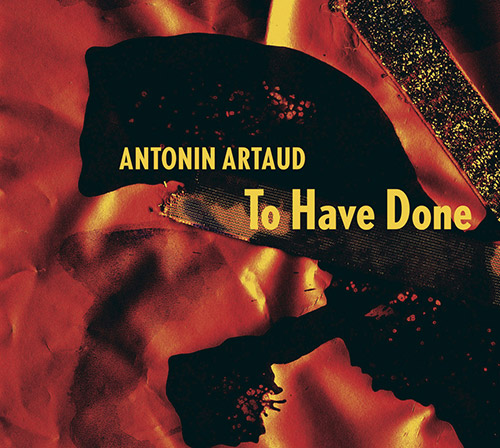

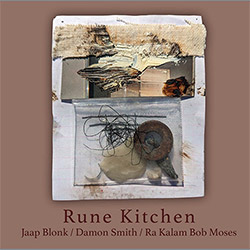

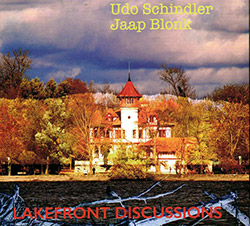
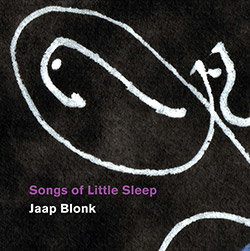
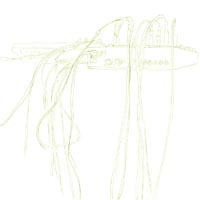

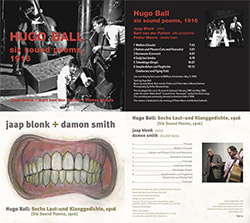

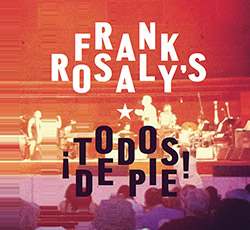

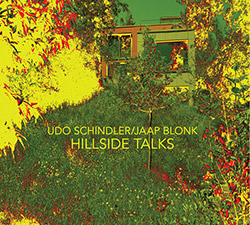

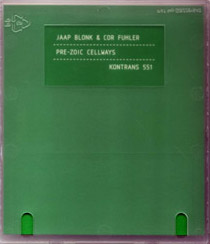


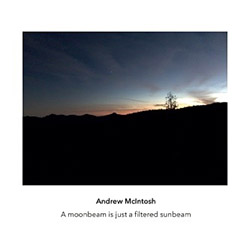
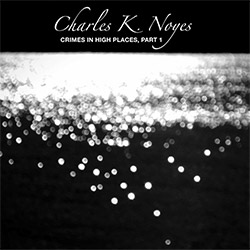
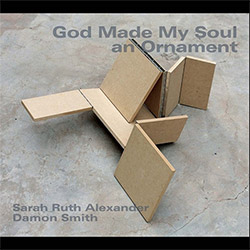
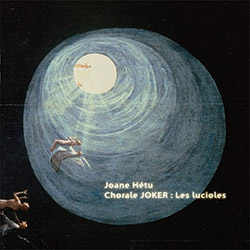
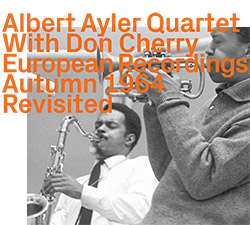

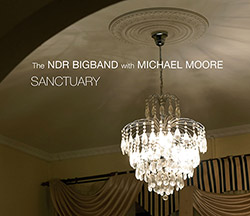
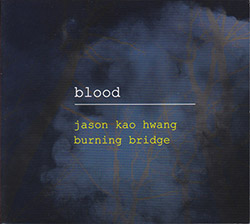

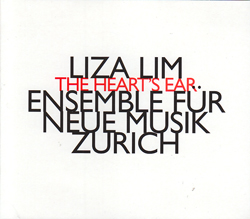




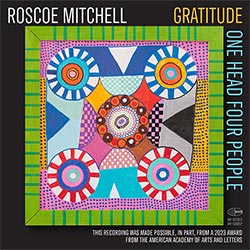
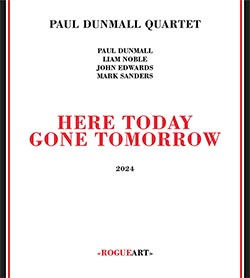
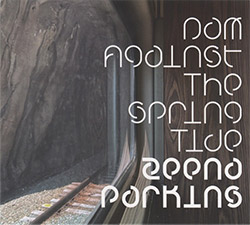
![Weston, Matt: Communism Has Appeared On The Scene [VINYL 2 LPs]](https://www.teuthida.com/productImages/misc4/35546.jpg)
![Coleman, Steve & Five Elements: PolyTropos / Of Many Turns [2 CDs]](https://www.teuthida.com/productImages/misc4/35476.jpg)
![Sorey, Tyshawn (w/ Diehl / Ragahavan): The Susceptible Now [DOUBLE VINYL]](https://www.teuthida.com/productImages/misc4/35477.jpg)


![John Coltrane Quartet (Coltrane / Tyner / Garrison / Jones): Impressions From Graz 1962, Revisited [2 CDs]](https://www.teuthida.com/productImages/misc4/35495.jpg)

![Guy, Barry / Ken Vandermark: Occasional Poems [2 CDs]](https://www.teuthida.com/productImages/misc4/34849.jpg)
![Novoa / Carter / Mela Trio: Vol.1 [VINYL]](https://www.teuthida.com/productImages/misc4/35236.jpg)


![Elephant9 : Mythical River [VINYL]](https://www.teuthida.com/productImages/misc4/34624.jpg)
![Evans, Peter (Evans / Eldh / Black): Extra [VINYL]](https://www.teuthida.com/productImages/misc4/35279.jpg)

![McPhee, Joe: Straight Up, Without Wings [BOOK]](https://www.teuthida.com/productImages/misc4/35454.jpg)
![Jeck, Philip: rpm [2 CDs]](https://www.teuthida.com/productImages/misc4/35455.jpg)









![Barker / Parker / Irabagon: Bakunawa [VINYL]](https://www.teuthida.com/productImages/misc4/35533.jpg)




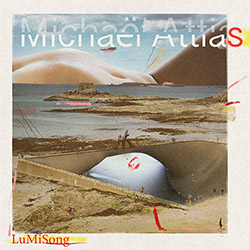
![Blaser, Samuel / Marc Ducret / Peter Bruun: Dark Was The Night, Cold Was The Ground [VINYL 10-inch]](https://www.teuthida.com/productImages/misc4/35492.jpg)






![Warren, Kenny (Warren / Hoffman / Ellman): Sweet World [VINYL]](https://www.teuthida.com/productImages/misc4/35451.jpg)




![Blake, Ran / Dave Knife Fabris: Live Amsterdam 2006, First Visit [CD + POSTCARDS]](https://www.teuthida.com/productImages/misc4/35275.jpg)



![DNS: Taking Big Bites Of The Khandas Three Cafes Deep [2 CDs]](https://www.teuthida.com/productImages/misc4/35334.jpg)




![Cleaver, Gerald: The Process [VINYL]](https://www.teuthida.com/productImages/misc4/34966.jpg)




![Alva Noto: HYbr:ID II [VINYL 2 LPs]](https://www.teuthida.com/productImages/misc4/35201.jpg)

![Baron, Derek / Luke Martin: Distinct and Concealed [CASSETTE + DOWNLOAD]](https://www.teuthida.com/productImages/misc4/35079.jpg)

![Lyle, Erica Dawn : Colonial Motels [CASSETTE + DOWNLOAD]](https://www.teuthida.com/productImages/misc4/35080.jpg)









![Sanna, Claudio: Compositori Sardi Contemporanei II [2 CDs]](https://www.teuthida.com/productImages/misc4/35317.jpg)







![Zurria, Manuel: Fame di Vento [3 CDs]](https://www.teuthida.com/productImages/misc4/35167.jpg)

![Granberg, Magnus / Nattens Inbrott / Skogen: Holde Traume, Kehret Wieder! [2 CDs]](https://www.teuthida.com/productImages/misc4/35038.jpg)
![Frey, Jurg: Outermost Melodie [2 CDs]](https://www.teuthida.com/productImages/misc4/35039.jpg)

![Pavone, Jessica: Reverse Bloom [VINYL]](https://www.teuthida.com/productImages/misc4/34895.jpg)




![Modney (Modney / Wooley / Gentile / Roberts / Pluta / Symthe / ...): Ascending Primes [2 CDs]](https://www.teuthida.com/productImages/misc4/34852.jpg)







![Elephant9 with Terje Rypdal: Catching Fire [VINYL 2 LPs]](https://www.teuthida.com/productImages/misc4/35355.jpg)
![Deerlady (Obomsawin, Mali / Magdalena Abrego): Greatest Hits [VINYL]](https://www.teuthida.com/productImages/misc4/34876.jpg)




![Haino, Keiji: Black Blues [2 CDs]](https://www.teuthida.com/productImages/misc4/35109.jpg)



![Surplus 1980: Illusion of Consistency [CD]](https://www.teuthida.com/productImages/misc4/35069.jpg)
![Staiano, Moe: Away Towards the Light [VINYL + DOWNLOAD]](https://www.teuthida.com/productImages/misc4/35037.jpg)



![Caveira (Gomes / Sousa / Abras / Ferrandini): Ficar Vivo [VINYL]](https://www.teuthida.com/productImages/misc4/34643.jpg)
![Gregg, J. J. / David Van Auken: Lunar Prairie [CD w/ DOWNLOAD]](https://www.teuthida.com/productImages/misc4/34611.jpg)

![Coultrain: Mundus [VINYL]](https://www.teuthida.com/productImages/misc4/32439.jpg)
![Mattin: Songbook #6 [VINYL]](https://www.teuthida.com/productImages/misc4/27317.jpg)
![Punkappella: Wake Up [7-inch VINYL]](https://www.teuthida.com/productImages/misc4/17519.jpg)
![Residents, The: WARNING: UNiNC.: Live And Experimental Recordings 1971-1972 [VINYL 2 LPs]](https://www.teuthida.com/productImages/misc4/31521.jpg)
![Coultrain: Phantasmagoria [VINYL]](https://www.teuthida.com/productImages/misc4/30142.jpg)
![Lennon, Sean Ono: Asterisms [VINYL]](https://www.teuthida.com/productImages/misc4/34517.jpg)

![Coley, Byron: Dating Tips for Touring Bands [VINYL]](https://www.teuthida.com/productImages/misc4/17906.jpg)

![Lost Kisses: My Life is Sad & Funny [DVD]](https://www.teuthida.com/productImages/misc4/lostKissesDVD.jpg)